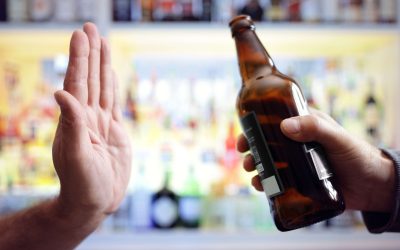A Handbook on the Interplay Between Post-Traumatic Stress Disorder and Alcoholism PCP The Perry Clayman Project
Trauma from exposure to combat is a frequent occurrence, and these wounds may not naturally heal. PTSD symptoms were https://ecosoberhouse.com/ measured with a self-report questionnaire rather than a diagnostic interview, limiting our ability to draw conclusions about individuals who meet diagnostic criteria for PTSD. The cross-sectional nature of the data limited us from examining change over time or directional relationships. We also used a sample of college students with a trauma history who reported alcohol use during the previous three months, and these findings may not generalize to different populations. To better understand these relationships, future research should include longitudinal designs so that the temporal implications of the meditational model could be examined.

Mental Health and Loneliness
Living with constant anxiety, hypervigilance, nightmares, and emotional numbness can feel unbearable. Alcohol offers a temporary escape by numbing emotions and helping people feel detached from their trauma. Educating loved ones and the broader community about the nature of PTSD blackouts can help reduce stigma and improve support systems for those affected. It’s important to emphasize that blackouts are not a choice or a sign of weakness, but rather a complex symptom of a serious mental ptsd alcohol blackout health condition that requires compassion and professional support. Support systems and resources are crucial for individuals dealing with PTSD blackouts. Support groups, both in-person and online, can provide a sense of community and shared understanding.
PTSD – Accepting, Coping, Thriving
- It leads to the deterioration of several body systems—including the skeletal, cardiovascular, digestive, reproductive, liver, and immune system.
- Someone who has blacked out can still perform many different actions and interactions with their surroundings.
- Whether you are struggling with addiction, mental health or both, our expert team is here to guide you every step of the way.
Survivors of trauma often deal with intense emotions and Alcoholics Anonymous constant stress, making alcohol appealing as a way to numb their emotional pain. Trauma may also lead to risky behaviors, like binge drinking or self-medicating, to cope with the anxiety and fear linked to PTSD. PTSD (Post-Traumatic Stress Disorder) and alcohol abuse are two serious mental health issues that often occur together.
- Treatment programs need to incorporate interventions that address these dissociative symptoms.
- For example, the National Institute on Alcohol Abuse and Alcoholism (NIAAA) found that people with PTSD are 2 to 4 times more likely to have alcohol use problems than the general population.
- Set limits, be aware of your triggers, and recognize when it’s becoming a coping mechanism.
- There are many resources out there to help you develop coping skills so you can move forward and thrive.
Defining Post-Traumatic Stress Disorder

While these experiences may be scary in the moment, you can control and even prevent them with the right treatment plan. In this guide, we will discuss how to handle PTSD blackouts and regain control of your mind and body. Stress and trauma are both causes of alcoholism, making PTSD a serious risk factor for developing alcohol addiction.
- While there are plenty of traditional cocaine rehabs in Florida, it can be hard to find treatment centers that fit your needs.
- The ECA program reported that the lifetime prevalence of DSM-III alcohol abuse and dependence was almost 14%.14 Prevalence varied by location, from about 11% in New Haven and Durham to about 16% in St. Louis.
- Like a camera with a faulty shutter, the mind sometimes clicks but fails to capture, leaving behind a haunting void where memories should be.